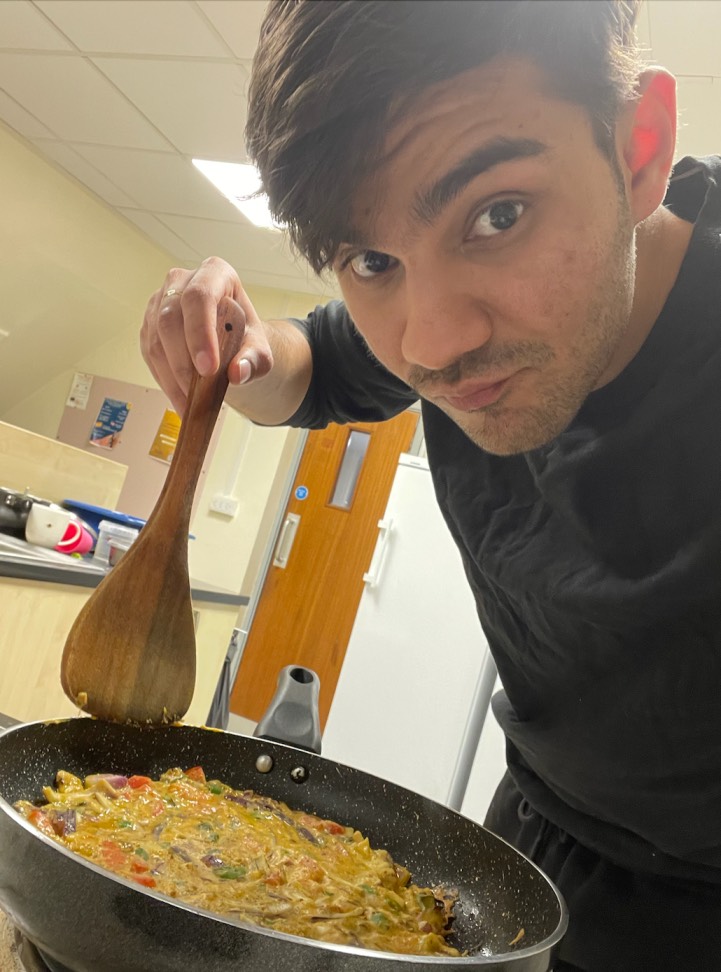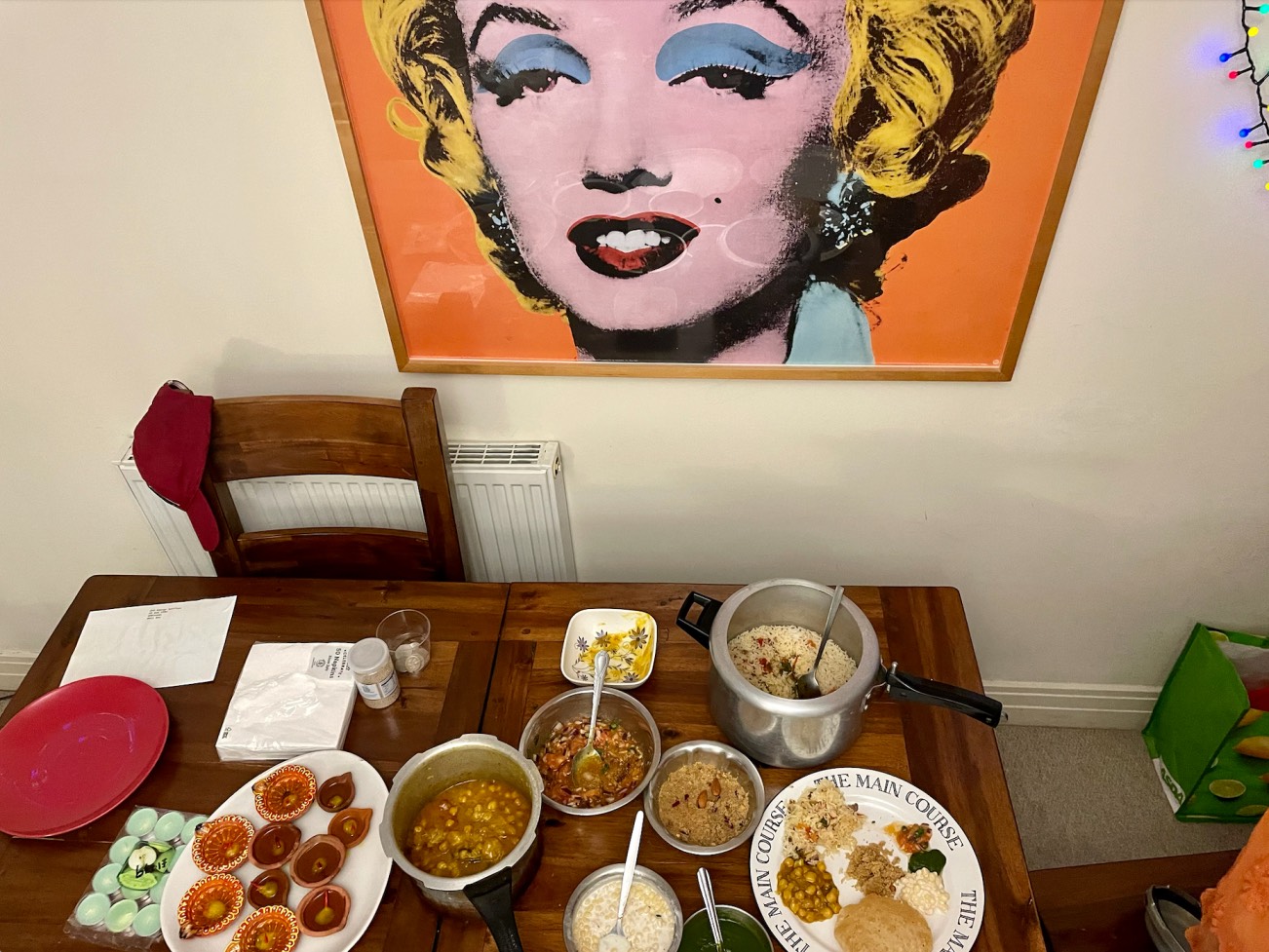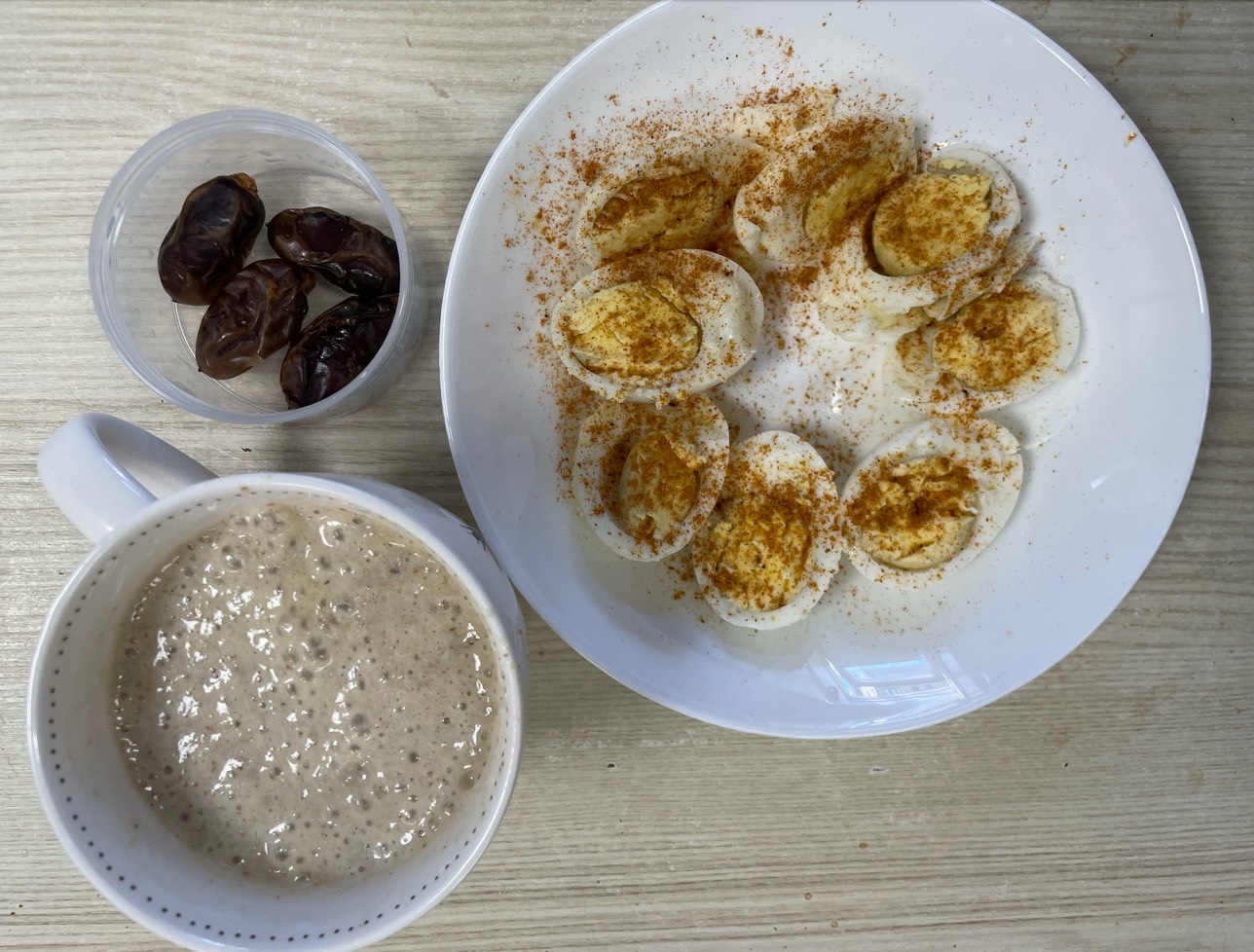Food has become a rush now. With so little time, people have stopped giving attention to cooking. It feels like a waste of time. The other day, my friend and I were talking about how it takes two hours to cook a typical Indian meal, since I’m from India, and just ten minutes to eat it. My friend said it should be the other way around, and honestly, I agreed.
However, during my time at Surrey, I realised I was both right and wrong. Food does take time, and as students, we often feel we don’t have enough of it. At the same time, I was making a mistake by ignoring it completely. I spent my dinners eating milk and biscuits. Lunch was usually an egg mayo and cress sandwich from Co-op. I cooked occasionally, and I can cook, but it always felt like I didn’t have the time.
This affected me more than I expected. I lost mental peace, faced some health issues, and missed out on quality time. At Surrey, where classes start early, grabbing just a coffee in the morning feels practical. Eating out seems like the best option to save time. Personally, I didn’t have the budget for that, so I often made the quickest meals possible, usually something with eggs.
Between chasing goals and adjusting to a new environment, food got sidelined. It always felt like there were more important priorities. Cooking takes time and energy, and after eating, especially a heavy meal, you often just want to lie down, watch something, or scroll on your phone. Still, I believe that once or twice a week, we should give ourselves the chance to slow down and enjoy a proper meal with friends.
Sitting together, sharing food, and having conversations can be such a meaningful part of student life.
At Surrey, we all live in different accommodations and come from different cultures. When we shared food or planned small dinner parties, it built a sense of community. Even having a meal that leaves you so full you can barely move can be a beautiful experience. It brings comfort, creates memories, and supports our well-being in ways we don’t always realise.
To be honest, there were many times I relied on other people’s generosity when it came to food. Friends in the same accommodation would often cook and invite me to join. Sometimes, because of poor time management or just sheer laziness, I wouldn’t have anything prepared. At other times, it was simply inexperience or being overwhelmed with everything else going on. I used to feel a bit shy while eating their food, like I was taking more than I should, but they never made me feel that way. Especially because Indian food and curries in general are cooked in larger quantities, they often had enough to share. That made it easier to manage, and we all kind of looked after each other that way.
However, since moving into private accommodation, things have changed. I’m in a house now, and the dynamic is different. I can’t always depend on someone else cooking. That has pushed me to take more responsibility for my meals. It has forced me to actually think ahead, plan what I need to buy, and make time to cook, even if it’s just something simple.
And honestly, it has been a blast. I’ve learned so many dishes over time. Some of them I picked up by watching YouTube, others I learned by simply asking people around me especially the cooking experts in the house. Living with housemates has taught me a lot about balancing life together. Sometimes we cook separately, and sometimes we manage to cook together, which makes it more fun. Even messing up the simplest of dishes turned into good memories. I’ve burnt things, undercooked rice, forgotten ingredients basically done it all. But that’s what made the learning worth it.
I feel like I’ve gained autonomy over my food. I’m no longer just grabbing whatever’s around but creating meals according to my own taste and preference. That freedom, even with its mistakes and experiments, has made me more confident and grounded.
Trying new food also helped me grow. I’ve found that food is one of the easiest ways to connect with others. I’ve cooked Indian meals for many of my friends, and that led to great conversations and new friendships. I’ve also been open to trying other cuisines. The amount of Iranian food I had in 2024, for example, was insane and I loved every bit of it.
One moment that really made me reflect was when a friend of mine from Iran, who is doing a PhD at Surrey, fell sick. He always ate food from outside and never cooked. He said he simply didn’t have time. That was when I realised I had to start prioritising my own health. While I wasn’t eating much junk, I still wasn’t feeling mentally satisfied with what I ate. That lack of satisfaction led me to constantly snack—grabbing something sweet or savoury to make up for it. Mentally, I felt off, like I was always running but not fully settled. I stayed busy, but I wasn’t nourishing myself properly, and it started to show.
Now, I’ve decided to make food a real priority. I know I can’t make fancy meals every day. With part-time work and classes, there are days when even eating feels rushed. But I’ve started cooking in batches, enough to last two days at a time. That feels more manageable. I’ve also gone back to my list of quick meals that take twenty to thirty minutes. I had stopped using it, but now I’m adding to it again.
From now on, I’m focusing on the essentials—food, sleep, and exercise. These three things are the foundation of good health and peace of mind. I’ll try new dishes when I can, even if it’s just once a month. It doesn’t need to be perfect; it just needs to be consistent.
Through this journey, I’ve learned a lot. I’ve cooked many different meals, but nothing comes close to my mom’s food. When I go back to India, I’ll probably pretend I don’t know how to cook so she spoils me a little. All jokes aside, food deserves to be a priority. It’s a simple but powerful way to stay healthy and feel grounded while navigating student life at university.



